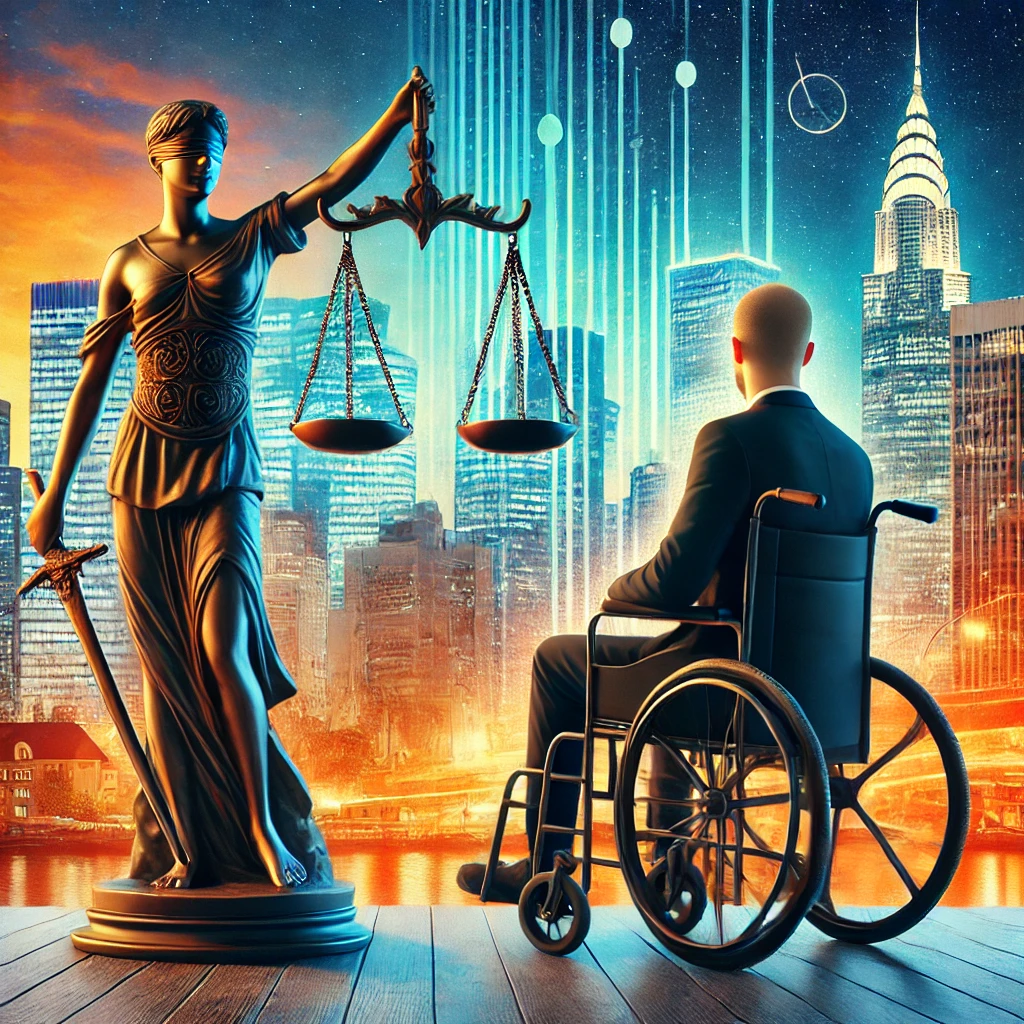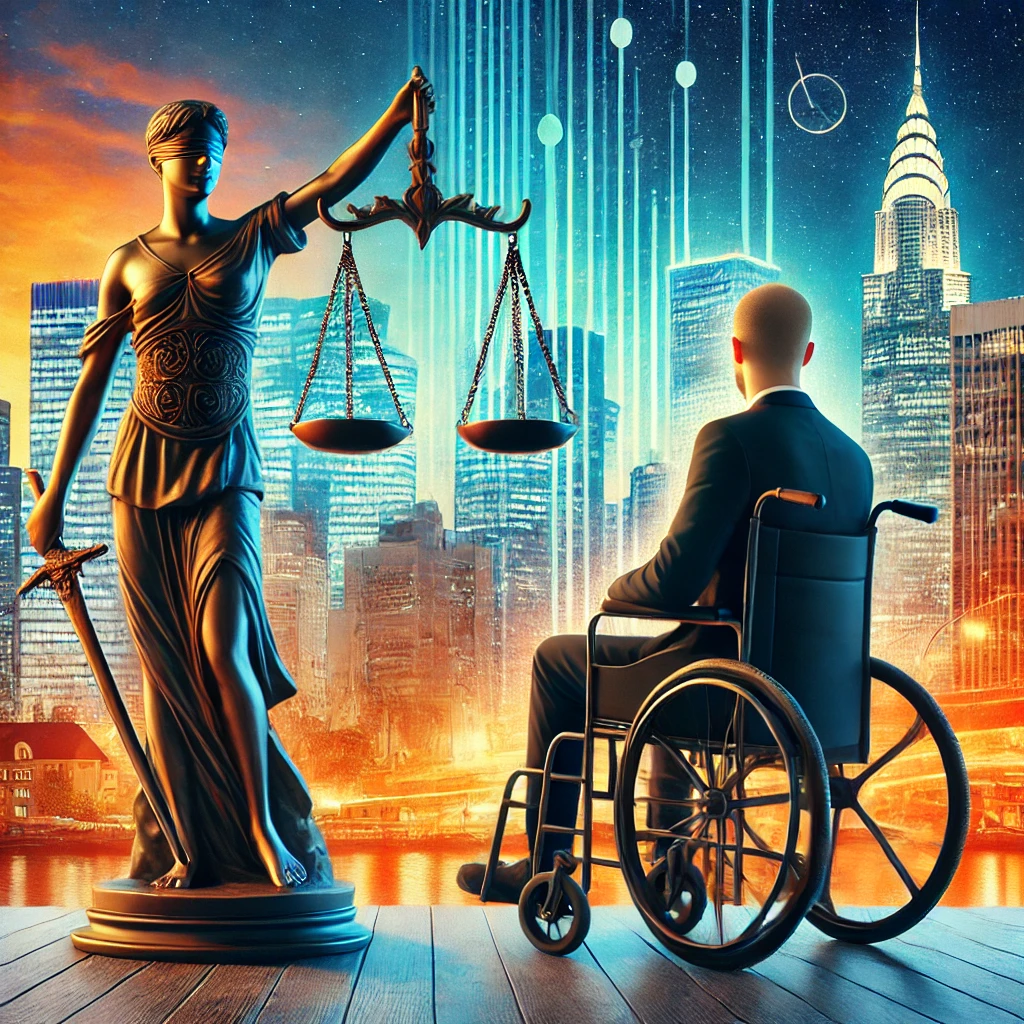Spinal Cord Injury Lawyers: Advocates for Your Recovery and Rights
Table of Contents
- Introduction to Spinal Cord Injury Lawyers
- What is a Spinal Cord Injury?
- Why Do You Need a Spinal Cord Injury Lawyer?
- Qualities to Look for in a Spinal Cord Injury Lawyer
- How Spinal Cord Injury Lawyers Help Victims
- Understanding Compensation in Spinal Cord Injury Cases
- Steps to Take After a Spinal Cord Injury
- Frequently Asked Questions About Spinal Cord Injury Lawyers
- Conclusion
Introduction to Spinal Cord Injury Lawyers
Spinal cord injuries (SCI) are life-altering events, often resulting in profound physical, emotional, and financial challenges. Navigating the complexities of such an injury requires the guidance of experienced spinal cord injury lawyers who specialize in securing compensation and justice for victims. These legal professionals play a pivotal role in ensuring that victims can focus on their recovery while their rights are protected.
In this comprehensive guide, we delve into the role of spinal cord injury lawyers, why they are essential, and how they help you secure a better future after an injury.

What is a Spinal Cord Injury?
A spinal cord injury occurs when trauma damages the spinal cord, disrupting the communication between the brain and the rest of the body. These injuries often lead to partial or complete loss of motor function and sensation below the site of injury.
Common Causes of Spinal Cord Injuries
- Motor Vehicle Accidents: Collisions are a leading cause of SCIs.
- Slip and Fall Accidents: Particularly common among older adults.
- Workplace Accidents: Especially in construction or high-risk industries.
- Sports Injuries: Contact sports or extreme sports mishaps.
- Medical Malpractice: Surgical errors or improper care leading to spinal damage.
Why Do You Need a Spinal Cord Injury Lawyer?
Dealing with a spinal cord injury involves more than just medical recovery. Here’s why you need an experienced spinal cord injury lawyer:
- Navigating Legal Complexities: SCIs often involve intricate laws and liability issues.
- Maximizing Compensation: A lawyer ensures you claim for medical expenses, rehabilitation, lost wages, and pain and suffering.
- Handling Insurance Companies: Insurance providers often minimize payouts; a lawyer ensures fair treatment.
- Providing Peace of Mind: Legal experts let you focus on recovery while they handle your case.
Qualities to Look for in a Spinal Cord Injury Lawyer
Choosing the right lawyer can make a significant difference in your case outcome. Consider these qualities:
- Experience: Look for attorneys with a proven track record in spinal cord injury cases.
- Compassion: They should understand the physical and emotional toll of your injury.
- Resources: Access to medical experts, accident reconstructionists, and financial analysts.
- Transparency: Clear communication about fees and the legal process.
How Spinal Cord Injury Lawyers Help Victims
Spinal cord injury lawyers offer specialized services to ensure your rights are protected and you receive fair compensation. Here’s how they help:
- Case Evaluation: Assessing the strength of your claim and determining potential compensation.
- Evidence Gathering: Collecting medical records, witness statements, and expert testimony.
- Filing Legal Claims: Managing deadlines and paperwork accurately.
- Negotiating Settlements: Ensuring you receive maximum compensation without prolonged trials.
- Trial Representation: Advocating for you in court if a settlement isn’t possible.

Understanding Compensation in Spinal Cord Injury Cases
Compensation in SCI cases varies depending on the severity of the injury and its impact on your life. Common types of damages include:
Economic Damages
- Medical Expenses: Covers surgeries, hospital stays, medications, and ongoing therapy.
- Lost Wages: Compensation for missed work and reduced earning capacity.
- Home Modifications: Costs for wheelchair ramps, lifts, and other necessary adjustments.
Non-Economic Damages
- Pain and Suffering: Compensation for physical pain and emotional distress.
- Loss of Enjoyment: For the diminished ability to enjoy daily activities.
Punitive Damages
In cases involving gross negligence, courts may award punitive damages to deter similar behavior in the future.
Steps to Take After a Spinal Cord Injury
Taking the right steps after a spinal cord injury can strengthen your case. Here’s a checklist to follow:
- Seek Immediate Medical Attention: Prioritize your health and document your injuries.
- Gather Evidence: Take photos, get witness information, and secure accident reports.
- Contact a Spinal Cord Injury Lawyer: The sooner you involve a lawyer, the stronger your case.
- Keep Records: Document medical expenses, therapy costs, and lost wages.
- Avoid Discussing the Case: Do not speak with insurance adjusters without legal representation.
Frequently Asked Questions About Spinal Cord Injury Lawyers
How much does a spinal cord injury lawyer cost?
Most spinal cord injury lawyers work on a contingency fee basis, meaning they only get paid if you win your case.
How long does it take to resolve a spinal cord injury case?
Case timelines vary. While some settle in months, others may take years, especially if they go to trial.
Can I still file a claim if I was partially at fault for the injury?
Yes. Many states follow comparative negligence rules, allowing you to recover compensation even if you are partially at fault.

Spinal Cord Injury Lawyers
Navigating the aftermath of a spinal cord injury is challenging, but with the support of experienced spinal cord injury lawyers, you can secure the justice and compensation you deserve. By choosing the right legal representation, you gain a dedicated advocate who will fight for your rights, helping you rebuild your life.
If you or a loved one has suffered a spinal cord injury, don’t wait. Contact a skilled spinal cord injury lawyer today to begin your journey toward recovery and justice.
1. Case Studies and Real-Life Examples
Adding real-world examples of successful spinal cord injury claims can make the content relatable. Showcase cases like:
- A victim of a car accident receiving substantial compensation for lifelong medical care.
- A workplace injury case leading to improved safety regulations.
2. State-Specific Laws
Discuss how laws like California’s comparative negligence rules or New York’s statute of limitations for personal injury cases could affect spinal cord injury claims. Provide a table summarizing key laws by state.
3. Common Defenses in SCI Cases
Outline defenses used by insurance companies:
- Disputing liability by blaming the victim.
- Questioning the severity of injuries with independent medical exams. Explain how lawyers counter these tactics through solid evidence and expert testimony.

4. Importance of Choosing the Right Medical Experts
Explain the role of medical professionals in proving:
- The severity and cause of the injury.
- Future care needs, as detailed by life care planners. Discuss how lawyers work with these experts to strengthen the case.
5. Technological Advances in Rehabilitation
Highlight new technologies aiding SCI victims, such as:
- Robotic exoskeletons for mobility.
- Advanced spinal implants for improved nerve regeneration. Link these innovations to the need for proper compensation to afford cutting-edge care.
6. Checklist for Hiring a Lawyer
Provide a scannable checklist:
- Verify the lawyer’s experience with SCI cases.
- Look for client reviews and testimonials.
- Ensure they work on a contingency fee basis.
- Confirm access to resources like expert witnesses.
7. Common Misconceptions About SCI Claims
Debunk myths like:
- “All cases end in a trial” – Most settle out of court.
- “Compensation is quick” – Cases can take months to years to resolve.
8. Resources and Support Groups for SCI Victims
List reputable organizations like:
- The Christopher & Dana Reeve Foundation.
- United Spinal Association. Link these as helpful resources for recovery and community support.
9. Interactive Content
Suggest adding tools, such as:
- A compensation estimator for SCI claims.
- A form for victims to document accident details to share with their lawyer.

10. Impact of SCI on Families
Discuss how spinal cord injuries affect families emotionally and financially:
- Costs of caregiving and home modifications.
- The need for family counseling and support. Explain how lawyers advocate for compensation to address these broader impacts.
the 30 most frequently asked questions (FAQs) related to spinal cord injury lawyers, along with detailed answers:
General Questions
- What does a spinal cord injury lawyer do? A spinal cord injury lawyer specializes in helping victims of spinal injuries secure compensation for medical expenses, lost wages, pain and suffering, and other damages.
- How can a spinal cord injury lawyer help me? They assess your case, gather evidence, negotiate with insurance companies, and represent you in court to maximize your compensation.
- When should I contact a spinal cord injury lawyer? As soon as possible after your injury. Prompt action helps preserve evidence and strengthens your case.
- Do I need a spinal cord injury lawyer for a minor injury? Even minor injuries can lead to long-term complications. Consulting a lawyer ensures you don’t miss out on potential compensation.
- What’s the difference between a personal injury lawyer and a spinal cord injury lawyer? A spinal cord injury lawyer specializes in cases involving spinal injuries, while personal injury lawyers handle a broader range of injuries.
Cost and Fees
- How much does it cost to hire a spinal cord injury lawyer? Most work on a contingency fee basis, meaning they only get paid if you win your case, usually taking 25-40% of the settlement.
- Are there upfront costs for hiring a lawyer? No, with contingency arrangements, you pay nothing upfront. However, ask about additional costs like court fees.
- What percentage of my settlement will the lawyer take? Typically, 33% if the case settles before trial, but this may vary based on your agreement.
Case Evaluation
- How do I know if I have a valid case? You have a case if your injury resulted from someone else’s negligence, recklessness, or intentional harm.
- How long does it take to settle a spinal cord injury case? Timelines vary. Some cases settle within months, while others take years if they go to trial.
- What’s the statute of limitations for filing a spinal cord injury claim? It depends on your state. Typically, it’s 2-3 years from the date of the injury.
- What types of compensation can I claim? Economic (medical bills, lost wages), non-economic (pain and suffering), and punitive damages in cases of gross negligence.
- Can I file a claim if the injury was partially my fault? Yes, in comparative negligence states, you can still recover compensation proportionate to your fault.

Insurance and Settlements
- Should I speak with the insurance company myself? No. Insurance adjusters aim to minimize payouts. Let your lawyer handle communications.
- How much compensation can I expect for my spinal cord injury? It depends on the severity of the injury, long-term care needs, and the liable party’s insurance coverage.
- What if the at-fault party doesn’t have insurance? Your lawyer may explore alternative options, such as suing the individual or seeking compensation through your uninsured motorist policy.
- What if I’m offered a settlement by the insurance company? Don’t accept it without consulting your lawyer. Early offers often undervalue your claim.
- Can I still file a claim if I’ve already started receiving insurance payouts? Yes, but your lawyer can determine how these payments might impact your settlement.
Legal Process
- Will my case go to trial? Most cases settle out of court, but your lawyer will take the case to trial if needed to secure fair compensation.
- How do lawyers prove fault in a spinal cord injury case? Through evidence like accident reports, medical records, expert witness testimony, and video or photo evidence.
- What happens if the at-fault party denies responsibility? Your lawyer will present compelling evidence and may pursue litigation if necessary.
- What if my injury was caused by multiple parties? Your lawyer will identify all liable parties and seek compensation proportionally from each.
- Can I sue for a spinal cord injury caused by medical malpractice? Yes, if negligence by a healthcare provider caused your injury. These cases often require expert medical testimony.
- How long does it take to receive compensation after a settlement? Usually within 30-60 days, but it depends on the case and the payment process.
Medical and Rehabilitation
- What medical expenses can I include in my claim? Surgeries, hospital stays, medications, rehabilitation, assistive devices, and future medical costs.
- Can I claim compensation for emotional distress? Yes, non-economic damages cover emotional and psychological suffering caused by the injury.
- What if I need long-term care or rehabilitation? Your lawyer will calculate these future costs and include them in your claim.
- Will compensation cover home modifications? Yes, expenses like wheelchair ramps, lifts, and accessible bathrooms are often included in settlements.
- Do I need medical documentation for my case? Absolutely. Medical records are crucial for proving the severity and cause of your injury.
- What if my condition worsens after the settlement? Settlements are usually final, so ensure future care costs are accounted for before accepting any offer.
This comprehensive FAQ covers most aspects of spinal cord injury cases, providing valuable information for potential clients.
Here is a list of 30 top-rated spinal cord injury lawyers across the United States, along with their addresses and websites:
1-10
- Keller & Keller
- Address: 2850 N. Meridian St., Indianapolis, IN 46208
- Website: 2keller.com
- Pintas & Mullins Law Firm
- Address: 368 W. Huron St., Chicago, IL 60654
- Website: pintas.com
- Morgan & Morgan
- Address: 20 N. Orange Ave., Suite 1600, Orlando, FL 32801
- Website: forthepeople.com
- Dolman Law Group
- Address: 800 N. Belcher Rd., Clearwater, FL 33765
- Website: dolmanlaw.com
- The Law Offices of Frederick W. Nessler & Associates, Ltd.
- Address: 536 N. Bruns Ln., Suite 1, Springfield, IL 62702
- Website: nesslerlaw.com
- Russell & Lazarus APC
- Address: 1401 Dove St., Suite 310, Newport Beach, CA 92660
- Website: russellandlazarus.com
- Moseley Collins
- Address: 980 9th St., 16th Floor, Sacramento, CA 95814
- Website: moseleycollins.com
- William Hurst
- Address: 50 S. Meridian St., Suite 600, Indianapolis, IN 46204
- Website: billhurst.com
- Tenge Law Firm
- Address: 2575 Pearl St., Suite 230, Boulder, CO 80302
- Website: tengelaw.com
- Blackwell Law Firm
- Address: 120 Holmes Ave. NE, Suite 401, Huntsville, AL 35801
- Website: blackwell-attorneys.com
11-20
- Hoggatt Law Office, P.C.
- Address: 123 N. College Ave., Suite 160, Fort Collins, CO 80524
- Website: hoggattlaw.com
- Sinas Dramis Law Firm
- Address: 3380 Pinetree Rd., Lansing, MI 48911
- Website: sinasdramis.com
- Gomez Trial Attorneys
- Address: 655 W. Broadway, Suite 1700, San Diego, CA 92101
- Website: thegomezfirm.com
- Levin & Perconti
- Address: 325 N. LaSalle St., Suite 300, Chicago, IL 60654
- Website: levinperconti.com
- Bailey & Greer
- Address: 6256 Poplar Ave., Memphis, TN 38119
- Website: baileygreer.com
- Wilshire Law Firm
- Address: 3055 Wilshire Blvd., 12th Floor, Los Angeles, CA 90010
- Website: wilshirelawfirm.com
- Edwards Kirby
- Address: 3201 Glenwood Ave., Suite 100, Raleigh, NC 27612
- Website: edwardskirby.com
- John Foy & Associates
- Address: 3343 Peachtree Rd. NE, Suite 350, Atlanta, GA 30326
- Website: johnfoy.com
- Kaplan Lawyers PC
- Address: 25 Broadway, 9th Floor, New York, NY 10004
- Website: kaplanlawyers.com
- The Reeves Law Group
- Address: 1055 W. 7th St., Suite 3333, Los Angeles, CA 90017
- Website: robertreeveslaw.com
21-30
- Friedman, Domiano & Smith Co., L.P.A.
- Address: 55 Public Square, Suite 1055, Cleveland, OH 44113
- Website: fdslaw.com
- Harris Personal Injury Lawyers
- Address: 301 Mission Ave., Suite 203, Oceanside, CA 92054
- Website: harrispersonalinjury.com
- Rosenfeld Injury Lawyers LLC
- Address: 225 W. Wacker Dr., Suite 1760, Chicago, IL 60606
- Website: rosenfeldinjurylawyers.com
- Farah & Farah
- Address: 10 W. Adams St., Jacksonville, FL 32202
- Website: farahandfarah.com
- GJEL Accident Attorneys
- Address: 1625 The Alameda, Suite 511, San Jose, CA 95126
- Website: gjel.com
- The Sawaya Law Firm
- Address: 1600 Ogden St., Denver, CO 80218
- Website: sawayalaw.com
- Burg Simpson
- Address: 40 Inverness Dr. E., Englewood, CO 80112
- Website: burgsimpson.com
- Morris Bart LLC
- Address: 601 Poydras St., 24th Floor, New Orleans, LA 70130
- Website: morrisbart.com
- Munley Law
- Address: 227 Penn Ave., Scranton, PA 18503
- Website: munley.com
- The Dominguez Firm
- Address: 3250 Wilshire Blvd., Suite 2200, Los Angeles, CA 90010
- Website: dominguezfirm.com
These firms have strong reputations in personal injury law, particularly for handling spinal cord injury cases. Let me know if you’d like further details on any of these firms!

Final Thoughts
Spinal cord injuries can have life-altering consequences, affecting not only the victim but also their loved ones. Navigating the legal, medical, and emotional challenges of such an injury requires the support of experts who understand the complexities involved. Spinal cord injury lawyers are your advocates, working tirelessly to ensure that you receive the justice and compensation you deserve.
Choosing the right lawyer is a crucial step in rebuilding your life. Their expertise, compassion, and dedication can make a significant difference in the outcome of your case and your ability to focus on recovery.
Best Recommendation
If you or someone you love has suffered a spinal cord injury, don’t wait to seek legal assistance. Morgan & Morgan stands out as one of the best spinal cord injury law firms, with a proven track record of securing high settlements for their clients. Their large team of specialists, nationwide presence, and client-first approach make them a trusted name in personal injury law. Visit Morgan & Morgan to schedule a free consultation today.
Legal Disclaimer
The information provided in this article is for informational purposes only and does not constitute legal advice. Readers should consult with a qualified attorney for advice regarding their specific situation. Viewing or reading this article does not establish an attorney-client relationship.
Medical Disclaimer
This article contains general information about spinal cord injuries and related topics. It is not intended as medical advice and should not be used as a substitute for professional diagnosis or treatment. Always seek the advice of your physician or other qualified health provider regarding medical conditions or treatments.






